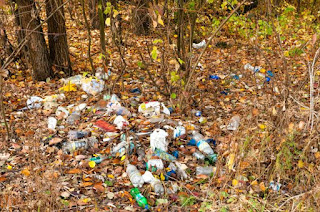The rains are here
again – the time of the year when most small holder farmers go to serious work,
at least in this part of the world (Sub-Saharan Africa) where many farmers
practice rain-fed farming. For many, it is a time of joy because of the
refreshing that rain brings and the harvests that are expected in not many
months from now.
But for me and those
who really care about food security and sustainability of agriculture’s most
important resource – the soil, the rains bring mixed feelings – joy and sadness
at the same time. Joy because of the promise of abundance that it holds and
sadness because it is that period of the year when the soil is mostly
maltreated and abused.

The soil is farmers’ most important resource and the world’s hope for continuous food supply. Unfortunately the soil is often taken for granted – treated like dirt – and for the most part, by the very people whose sustenance depends directly on it.
Each passing minute the soil is assaulted, suffocated, contaminated, exploited, poisoned, mistreated and depleted by people.
assuring them of higher yields and higher returns on investments if they would
just use this product or that product to fertilise the soil, kill pests or
suppress weeds.
Whether we realize it or
not, by our choices today we are stealing the future from the unborn generation. What happens if we keep
having extreme rain, unusually strong winds, and our farms are unable to keep
up with our food needs because our soils can no longer hold nutrients due to
the destructive effects of chemicals?

My
case for the soil is to encourage us to begin to:
1. Take proactive steps towards eliminating
the toxins we add to the soil because they will end up in our bodies thereby
increasing the risks of contracting terminal diseases
2. Take proactive steps towards preserving
and conserving soil biodiversity – big word eh? – I’ll break it down for you in
a subsequent post
3. Take proactive steps towards recycling
wastes rather than just dumping them on the soil
4. Take proactive steps towards feeding the
SOIL, not the plant. I hope you read that. Most of modern farming practices
are tailored towards feeding the plant at the expense of the soil and they are
not sustainable.

